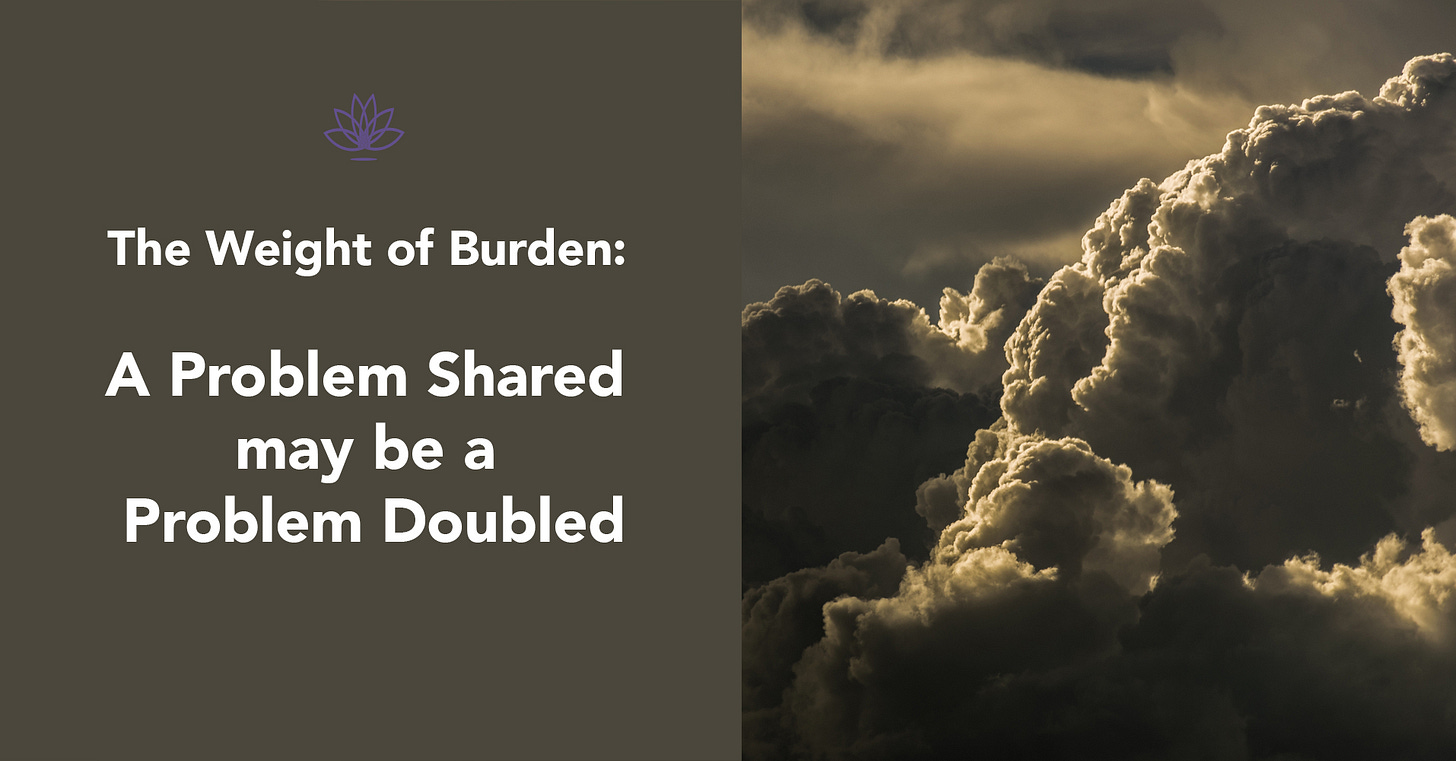A problem shared is a problem halved, right? It's a common phrase suggesting that talking through problems with others reduces the burden. It reflects the human desire for connection and understanding, highlighting the value of empathetic listening. And while certainly a helpful approach, I'd like to consider an alternate perspective - that a problem shared may actually be a problem doubled.
To understand this mathematical inversion, we must step back into the metaphysics of A Course in Miracles. The course teaches that every problem is nothing but a mistaken belief in a thought system of separation. In other words, our problems are unreal — illusions made by the choice for the ego mind.
When we share a problem with another person, we are reinforcing the obstacle’s substance. Essentially exclaiming, "This problem is real, and I’d like your help to carry it." By doing so, we are effectively doubling its significance, rather than halving it.
This is true even if we're just sharing a problem with ourselves. Each difficulty brought to mind increases its importance. And as we continue doing so, the weight of our challenges grows exponentially.
But there is a way out. A Course in Miracles counsels that we can eliminate all concerns by looking at them differently. Instead of strengthening their reality, we may recognize their illusory inherence by choosing to see through the light of oneness.
Think, then, how great your own release will be when you are willing to receive correction for all your problems. [You will see each] vanish one by one, without regard to size, complexity, or place and time. (T-26.II.7, T-26.II.3)
By changing perception and aligning ourselves with the vision of truth, all problems are dissolved into the nothingness from which they came.
This is not to say that we shouldn't seek assistance or support when we're struggling. In fact, reaching out to others can be an incredibly helpful step in the process of transitioning perception from illusion to truth. But ultimately, the solution to all problems lies in changing the way we think about them. Shifting from a mindset of obstacle onerousness to rhapsodic reflection. A problem transcended is a problem dispelled.
Join me in Thursday’s class where we’ll explore the nature of problems, and practices we can develop for experiencing less pain and more peace. I look forward to seeing you then.




